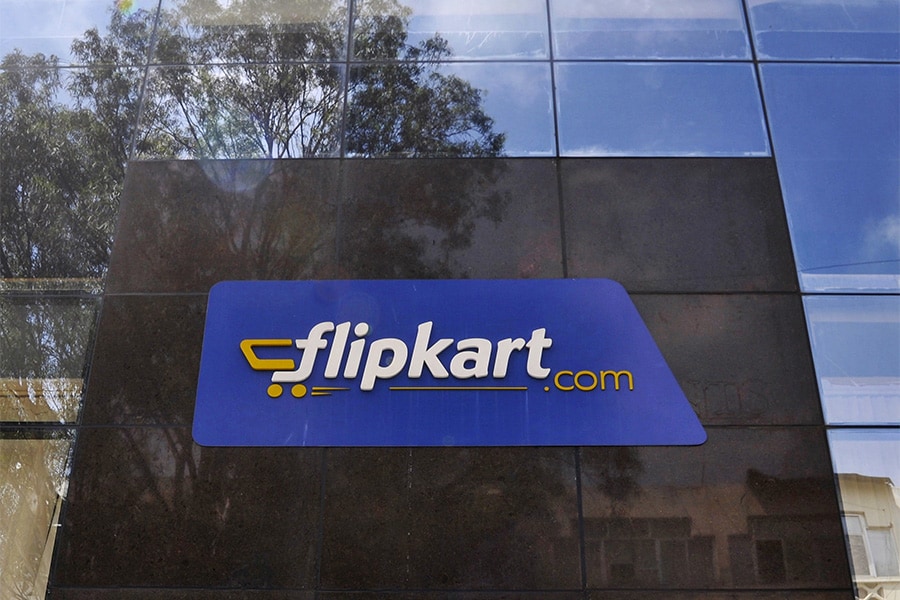
Lack of local investor support is giving foreign rivals an edge, say Flipkart, Ola
The poster boys for India's startup prowess seek government help in fostering an 'India-centric' local startup ecosystem

Image: Abhishek N. Chinnappa / Reuters
Fighting to hold their own against the deep-pocketed onslaught from overseas competition, India’s two best-known Internet companies say the absence of support from local investors skews the playing field against them.
Flipkart, India’s biggest online shopping company—and the inspiration for many in the startup ecosystem—and Ola, the country’s largest ride-hailing app services provider, are facing intense competition from Amazon.com and Uber Technologies for market share in India.
“What’s happening is that there is a narrative of innovation that the Western, non-Indian, companies espouse, but even though the products are largely similar, the real fight is on the capital side,” Bhavish Aggarwal, co-founder and CEO of ANI Technologies, which operates the Ola cab-hailing network, said on Wednesday.
Aggarwal and Sachin Bansal, co-founder and executive chairman of Flipkart, were speaking at a technology conference in Bengaluru, organised by Carnegie India, the Indian unit of policy think tank Carnegie Endowment for International Peace.
Ola and Flipkart are fighting to retain their lead in a market so nascent that only about two percent of retail shopping in the country today happens online, while an estimated 250 million people have come to own smartphones over the last two years —a number projected to more than double over the next three to four years.
“There is hardly any difference,” Aggarwal added, between the apps from the local startups and those offered by overseas companies, “but the markets are being distorted by capital”.
That the consumer internet is nascent gives overseas competitors with more financial might a window of opportunity to spend their way into market dominance. Mohandas Pai, who chaired this discussion at the conference, pointed out that global investors were interested in a return on their investment, and had no national allegiance.
Indeed, the biggest investors in Flipkart and Ola are overseas investors such as Tiger Global and Softbank Group Corp. The lack of local capital support means that the Indian startups are competing in the West for money, Aggarwal said, where the local companies have an edge, including because they may have operations in other markets where they are profitable.
“It is actually a very unfair playing field against the Indian startup. Now something needs to be done about this,” he said.
With the exception of space technology and atomic energy, both entirely driven by the government and seen as strategic national interests, India’s lack of a deep innovation ecosystem in electronics and high-technology has led the country to start a ‘Make-in-India’ campaign. It is also belatedly trying to build a semiconductor wafer foundry.
In addition to the consumer Internet market, smartphones themselves are an example of a sector with relatively low entry barriers to the local market. Chinese vendors such as Xiaomi and Lenovo have capitalised on this to win an ever increasing share of the country’s smartphone market—the largest by unit sales in the world after China. These vendors, however, have made some commitments to increasing local manufacturing.
The internet technology sector is unique in that, it is “naturally monopolistic,” cost of distribution is close to zero, and once a technology is ready and commercialised, it’s equally available to everyone, Bansal said.
“If we fast forward ten years from now, what is the better outcome for India. The better outcome is one where we have companies in the consumer internet space that solve Indian problems,” Bansal said. Such a scenario would help generate jobs, increase the tax base, and encourage greater FDI as well, he added.
For now, global capital is a fait accompli, where more than 90 percent of the Indian startup ecosystem is supported by money from overseas investors. Such was also the case with China, Bansal said, with companies such as Alibaba being built on global capital. “Jack Ma’s share in Alibaba today is in the single digits, and Alibaba had to compete against eBay at the height of its capabilities” 15-17 years ago, he said.
Things are, however, changing. At the seed level and series A level, which helps with early-stage growth of a startup, there is much more local funding today than five years ago, Bansal said. Ten years down the line, there would be more local participation in subsequent rounds of funding of startups as well, and even the capital markets would be mature enough to support local internet startups, he anticipates.
In the mean time, however, “I think what we need to do is what China did. They told the world that ‘we need your capital but we don’t need your companies’,” he said.





